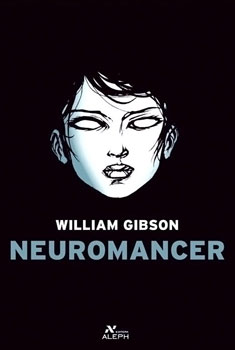Character history
In all three stories, Molly is a physically tough (but not instantly imposing) bodyguard/mercenary cyborg. She is referred to as a "razorgirl" or "street samurai" throughout his stories and also as "Steppin' Razor" by the residents of Zion, a Rastafarian enclave aboard a space station.
A useful contact for dealing with gangs and black market elements, she tends to show little remorse for the opponents she ruthlessly dispatches in the course of her objectives. In fact she shows few deep emotions towards anyone outside of hatred, suspicion or amused contempt. Nevertheless, Molly is always regarded throughout the book as a loyal, morally strong character, opposed to the progressing decay of human relations in the world Gibson depicts.
An exception to her cold, somewhat cynical approach to life was her relationship with Johnny (of "Johnny Mnemonic"), for whom she still mourned at the time of Neuromancer. This is part of the personal history she relates to its protagonist, Case, in addition to the revelation that she worked as a "meat puppet" (a prostitute) in a "puppet parlor" (a brothel where people lend out their bodies while maintained in a blanked-out state) to pay for her considerable cybernetic enhancements.
Another pseudonym, used when she rents a hotel room in Neuromancer, is "Rose Kolodny", the name by which the Turing Police refer to her. The Turing Police may have simply gotten the name from the hotel's registry, but it is sometimes speculated to be her original name. The later trilogy books speculate that she is "SINless", having been an unrecorded birth and never having been issued a "Single Identity Number". This would give her the advantage of being more difficult to track in the cyberspace environment. Critic Larry McCaffery asserts that the name "Molly" is a reference to her status as a gun moll. [1]
William Gibson has stated that he derived inspiration for the character from the image of Chrissie Hynde on the cover of the first Pretenders album. [2] [3]
Augmentations
Molly's metabolism, sensory input, and reflexes are artificially heightened by means of electronic implants and other advanced medical procedures. She has razor-sharp retractable blades underneath her fingernails, each double-edged and four centimeters in length. Appearing at first glance to be wearing mirrored sunglasses, Molly has in fact had her eye sockets sealed with vision-enhancing mirrored lenses, installed by the skilled black-market surgeons of Chiba City. To accommodate the inset lenses her tear ducts have been re-routed to her mouth; on the very rare occasions she cries, she either spits out or swallows the tears. She never lets others touch the lenses as it would leave messy fingerprints requiring extra cleaning. [4]
This page is based on this
Wikipedia article Text is available under the
CC BY-SA 4.0 license; additional terms may apply.
Images, videos and audio are available under their respective licenses.
